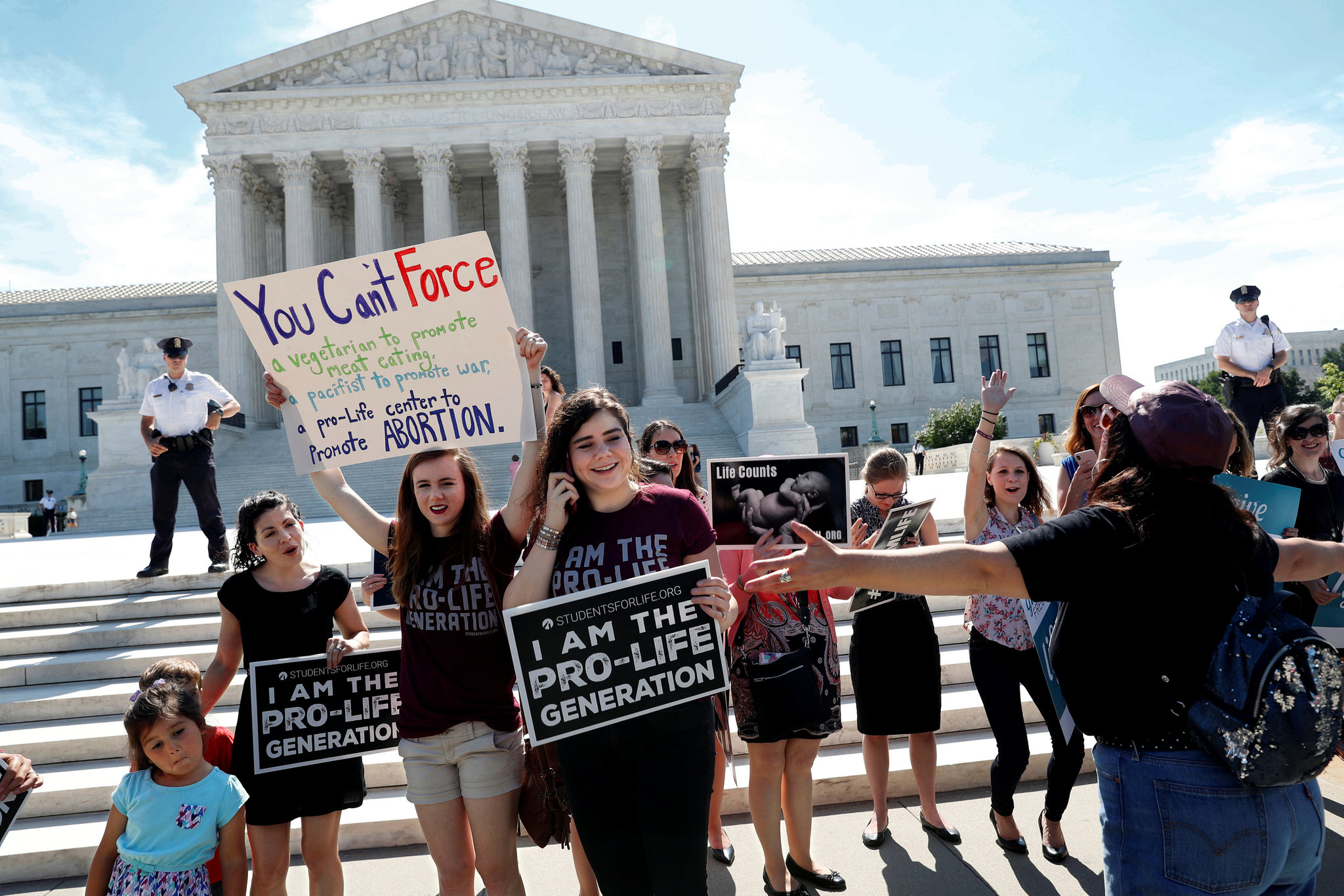Penna Dexter
After oral arguments in an abortion clinic’s challenge to Mississippi’s law banning most abortions before 15 weeks gestation, the question has become: Will Roe v. Wade and Planned Parenthood v. Casey stay or go?
The Chief Justice hinted at the possibility of a narrower ruling. But attorneys for the abortion clinic and for the Biden administration argued for what National Review described as an “all-or-nothing outcome…giving the court no alternative path to uphold the Mississippi law without overturning Roe.”
Father Frank Pavone of Priests for Life is optimistic. “I was gratified,” he said, “to hear the kinds of questions the six conservative justices were asking,”
If Mississippi’s law is upheld, the state’s laws on abortion will still be less restrictive than those of 39 of the 42 countries in Europe.
In oral arguments, neither the lawyers for the Jackson Clinic, nor the two pro-choice justices who spoke, seriously defended Roe as a correct reading of the Constitution. Justice Sotomayor argued that to protect a life is a religious view and to do so would create a political “stench.” Justice Breyer made an argument about “watershed precedents” that the court should be “more unwilling” to overrule.
But Justice Kavanaugh pointed to the many times the court has overruled precedent in cases that were wrongly decided. One of those cases was Brown v. Board of Education, which served to overrule the “separate but equal” principle set forth in Plessy v. Ferguson.
Justice Roberts seemed to be looking for a middle ground. But the 1992 Casey decision presents a problem in that it declares that states cannot create an “undue burden” for accessing an abortion before a fetus is viable and no fetus is viable before 15 weeks gestation.
Once the decision is rendered — if, as hoped it overturns Roe and Casey — the states, the Constitutional laboratories of democracy, will decide their own laws regarding abortion. The people and their elected representatives will govern themselves on abortion policy.
 Listen Online
Listen Online Watch Online
Watch Online Find a Station in Your Area
Find a Station in Your Area









 Listen Now
Listen Now Watch Online
Watch Online
